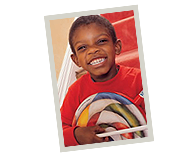Play Therapy Research
From PTUK, August 2011
 The latest research results from Play Therapy UK show the following: between 74% -83% of children receiving play therapy experience a positive change. Girls show a higher improvement rate than boys – 79% compared to 73%. The more severe the problems, the greater the percentage of children showing a positive change – 74% for those with slight/moderate problems, 83% for those with severe problems. Age also has an effect on improvement: the younger the child, the greater the percentage showing a positive change. Therefore, early intervention is considered the most effective.
The latest research results from Play Therapy UK show the following: between 74% -83% of children receiving play therapy experience a positive change. Girls show a higher improvement rate than boys – 79% compared to 73%. The more severe the problems, the greater the percentage of children showing a positive change – 74% for those with slight/moderate problems, 83% for those with severe problems. Age also has an effect on improvement: the younger the child, the greater the percentage showing a positive change. Therefore, early intervention is considered the most effective.
View research pages on the PTUK website.
Therapeutic Sandplay Research
“Often the hands know how to solve a riddle with which the intellect has wrestled in vain.” – C.G. Jung
The following information about Kalff’s case studies is from Sandplay Therapy: Research and Practice,
by Grace Hong.
Case studies by Dora Kalff documented the progress of a number of cases - the usefulness of the sandplay therapy was demonstrated by the following: a 9 year old boy who overcame an anxiety neurosis; the cure of a 12 year old boy’s learning inhibition; a 12 year old girl’s successful separation from an over-powering mother-fixation; a 5 year old boy’s triumph over a speech block; a young, adopted girl who overcame her inability to read, among many others.
Music Research
 The following was written by Mark Ward, for Science Matters.
The following was written by Mark Ward, for Science Matters.
“Anyone who has been around small children knows that a sure-fire way to capture their attention is with music. Hum a song or plink out a tune on a piano or guitar and it is as if you had switched on a magnet, as they gather around wanting to join in. Now there is evidence that the response is not simply a pleasant distraction but an affinity wired into the brain from birth that could also help prepare children for some of the most complex learning they will ever do. Those are some of the conclusions coming from the work of Psychology Prof. Frances Rauscher at the University of Wisconsin-Oshkosh, with a study finding that preschool children in Los Angeles who received music training with keyboards performed 34% higher on tests for spatial-reasoning than children who were trained on computers or had no special training at all.”
What is the Next Stage?
Contact Jane to arrange a consultation at Sandworlds in Thelwall, Warrington.